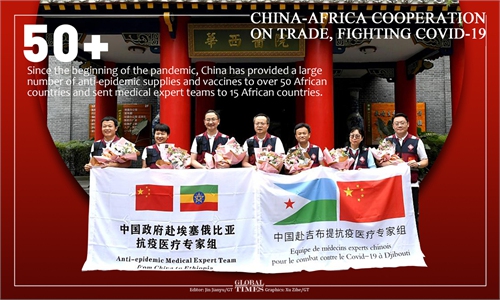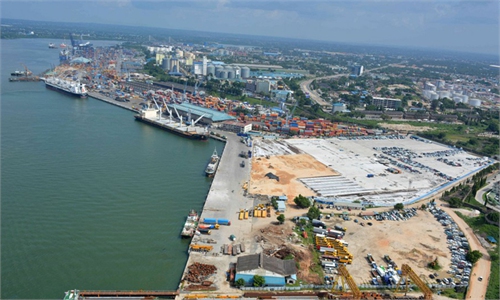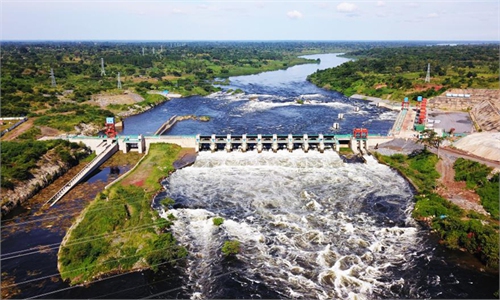
Illustration: Tang Tengfei/Global Times
Though extremely cliché, some Western media still can't pass up any chance to hype up the so-called "debt trap" theory when it comes to cooperation between China and other developing economies. The latest example is Uganda's international airport, which some media reports said is under risk of being "taken over" by Chinese lenders after failing to make a repayment.The Entebbe International Airport is the only international airport of the African country of Uganda, which is being upgraded with the backing of a loan from the Export-Import Bank of China. Due to repayment difficulties, the airport may be taken over by the Chinese lender, Deutsche Welle reported on Saturday.
The report is yet to be confirmed; nonetheless, the logic and intention behind this kind of stories is clear: the writers only fixate their eyes on everything that relates to China, regardless of whether the projects are beneficial to local economies, or the solutions, if there emerges difficulties during construction, are practical and in line with the interest of local people.
There is an essential difference between China and Western countries when dealing with other countries and regions, especially when discussing less-developed states.
What rich Western countries bring to poor regions is exploitation and servitude, which appears to be the logic they now use to view China, with an intention to portray China as a "threat" to the less-developed countries.
The truth, which many anti-China politicians and media outlets from the West camp do not want to see or acknowledge, is that the cooperative projects between China and many developing nations are carried out based on mutual benefit, especially the long-term interest of developing countries like Uganda.
The Entebbe International Airport was built in 1951. With the growth of Uganda's economy and tourism industry, the airport had been unable to meet the growing demand for air transport. According to Uganda's Civil Aviation Authority, the Ugandan government "mooted the idea of expanding the airport into a modern aviation hub as it sought to take advantage of fledgling tourism and export markets in Europe, the Middle East, and Asia."
It is Uganda, based on its own development needs, that decided to seek financing from overseas sources, and the Uganda Civil Aviation Authority in October elaborated that the project "is value for money."
Apart from the airport project, China has been an important supporter of Uganda's industrialization and the Uganda Vision 2040, offering support to the country's key construction of hydropower stations, highways, communication networks, which all have played important roles in the country's economic and social development.
In the meantime, another twisted example the Western media never forgets to mention is the concession agreement on the Hambantota Port in Sri Lanka, which has been distorted as a typical case of a so-called "debt trap."
However, as a landmark infrastructure project jointly undertaken by China and Sri Lanka under the Belt and Road Initiative (BRI), the port is designed to become a center for logistics, shipping and industrial activities for the Indian Ocean and an important engine for Sri Lanka's future economic growth.
Chinese capital and private sector involvement is not bad news for developing countries, but the West's ill-intend vilification could be.
There is simply no need for the West to repeatedly describe China as a threat and African and other developing countries as incapable entities to manage their financial arrangements. The bottom line is that there have been over 2,000 projects launched by China and other countries under the BRI, an inspiring story of joint development for the world to take note of.



